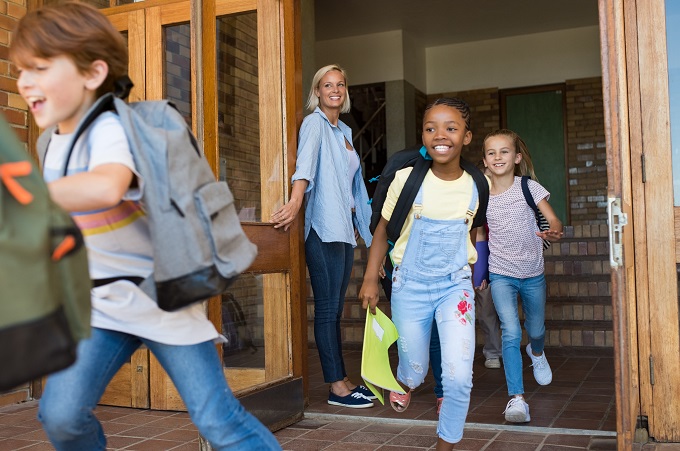
© Rido Images - stock.adobe.com
<p>Most physical activity interventions for children are based in the schools; however, children typically engage in more sedentary activities and spend more time eating when at home.</p>
<p>Researchers from Auckland University of Technology (AUT) and the University of Otago have investigated the effects of a compulsory, health-related homework programme on physical activity, dietary patterns and body size in primary school children.</p>
<p>Auckland and Dunedin primary schools implemented Healthy Homework, an eight-week programme of applied homework and in-school teaching designed to increase physical activity and improve diet.</p>
<p>A study of the programme, published in the <i>International Journal of Behavioural Nutrition and Physical Activity</i>, showed a significant effect on weekday physical activity at home, weekend physical activity and consumption of fruit. The greatest improvements in physical activity occurred in children from the most socioeconomically deprived schools. No consistent effects were observed on sedentary time (TV and screen-based), weight to height ratio or other dietary patterns.</p>
<p>The research, funded by the Health Research Council, concluded that a compulsory health-related homework programme resulted in substantial and consistent increases in children’s physical activity; particularly outside of school and on weekends. The findings support the integration of compulsory home-focused strategies for improving healthy behaviour into the primary education curriculum.</p>
<p>Healthy Homework ran between August 2011 and August 2012, involved 675 children aged 7-10 years across 16 schools. Children received a homework booklet with weekly topics, containing a physical activity and a nutrition component. Three practical options were given for each topic, and children were directed to complete at least one physical activity and one nutrition task per week (e.g. organising family walks, walking to and from school, limiting screen time, testing the fitness of the family, eating 5+ fruit and vegetables each day, comparing food labels at the supermarket, helping with dinner, preparing a healthy lunch box). This was supplemented with educational content at school.</p>
<p>AUT Associate Professor Scott Duncan says a key strength of the study was the design of a homework syllabus that maximised family participation and engagement, thereby targeting out-of-school behaviours.</p>
<blockquote>
<h3>“Our results demonstrate significant and sustained increases in physical activity 6-months post-intervention. Of note were the large effects on out-of-school physical activity approximate to hypothetical increases of 15.6% each weekday and 29.7% each weekend day.</h3>
</blockquote>
<p>“This degree of improvement, should it persist over the long term, would likely have a meaningful impact on children’s health and wellbeing; reviews have identified favourable effects on a wide range of physical, psychosocial and cognitive outcomes of even modest increases in physical activity.”</p>
<p>He says furthermore, the relatively larger effects observed in children from the most socioeconomically deprived schools suggests that this intervention approach may be an effective way of engaging at-risk populations.</p>
<p><a href="https://ijbnpa.biomedcentral.com/articles/10.1186/s12966-019-0840-3" target="_blank" rel="noopener noreferrer">Click here to read the study in full</a></p>

NZEI Te Riu Roa is considering legal action against the government for the disestablishment of…
NZQA is implementing AI-marking for all Year 10 written assessments from this year onwards, following…
Teaching personal financial responsibility isn't enough. Children should be taught broader economic context, argue New…
When students can't hear the teacher, they can't learn properly. Sound quality matters in education…
The Garden City is rich with learning opportunities, no matter what subject or part of…
Teaching Council of Aotearoa launch school leaders’ stories project with Unteach Racism to challenge institutional…
This website uses cookies.